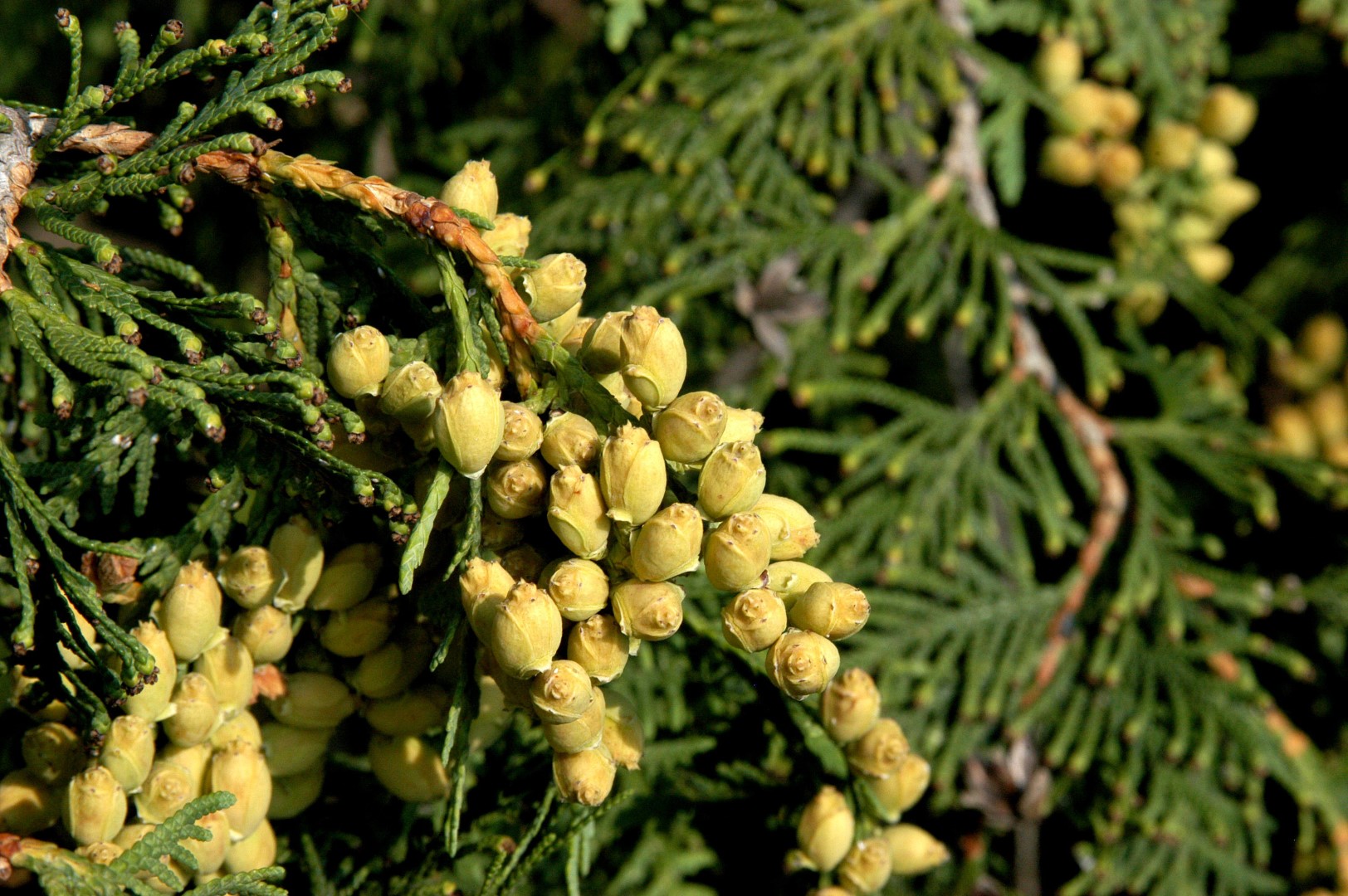Thuja occidentalis is an evergreen tree from the cypress family (Cupressaceae). It’s popularly grown as an ornamental plant in gardens and parks and is also known as American Arbor Vitae or the Tree of Life.
Other Common Names:
It is also known as:
-
Yellow Cedar
-
Eastern White Cedar
-
False White Cedar
-
Hackmatack
-
Lebensbaum
-
Thuja
-
Indrajal (in Oriya)
History:
This tree naturally grows in the north-eastern parts of North America. It was one of the first trees from that region brought to Europe before the 1600s. Over time, it gained a reputation for its medicinal uses:
-
Early doctors like Boerhaave and Hahnemann used it in homeopathy.
-
In 1753, Peter Kalm noted it was used in Canada for health purposes.
-
In 1785, it was praised for treating scurvy.
What It Contains (Constituents):
-
When its leaves and twigs are distilled with steam, it produces a volatile oil (0.5% to 1%) that smells like camphor.
-
It contains chemicals like thujone, pinene, and fenchone, though they don’t have widely recognized individual medical uses.
Medicinal Uses:
Parts Used:
Fresh leaves and young twigs are most effective.
Main Uses:
-
Skin Problems:
-
Thuja is a popular remedy for skin conditions like:
-
Warts (small growths on the skin)
-
Fig-warts (wart with a small stalk)
-
Flat or black warts
-
Pustules (pus-filled spots), similar to smallpox
-
Brownish patches and scaly eruptions on skin
-
-
It helps prevent scars after smallpox.
-
-
Urinary Problems:
-
Thuja helps in cases of:
-
Involuntary urine leakage
-
Gonorrhea (a sexually transmitted infection)
-
Burning sensation in the urinary passage
-
Yellowish discharge from the urethra
-
-
-
Other Benefits:
-
Acts on the skin, blood, digestive system, kidneys, and brain.
-
Treats wart-like growths on skin and mucous areas.
-
Known for its antibacterial effects, especially in gonorrhea and after vaccination reactions.
-
Helpful in joint and muscle pains that worsen at rest, in damp weather, and improve in dry conditions.
-
Supports people with hydrogenoid constitutions (those sensitive to damp air and water).
-
-
Traditional Use:
-
Used by Master Mattei in a remedy called Venerio No. 1 for constitutional problems related to skin and sexual health.
-
Caution:
Thuja should be used under medical supervision, especially because it contains strong oils like thujone, which can be harmful if not used carefully.
Speech Disorder
A speech disorder, also known as a speech impairment...
ADHD
Attention-deficit / hyperactivity disorder (ADHD) is a...
Cerebral Palsy(CP)
Cerebral palsy (CP) is a group of neurological disorders...
Cancer
Cancer is a broad term for diseases where cells...




